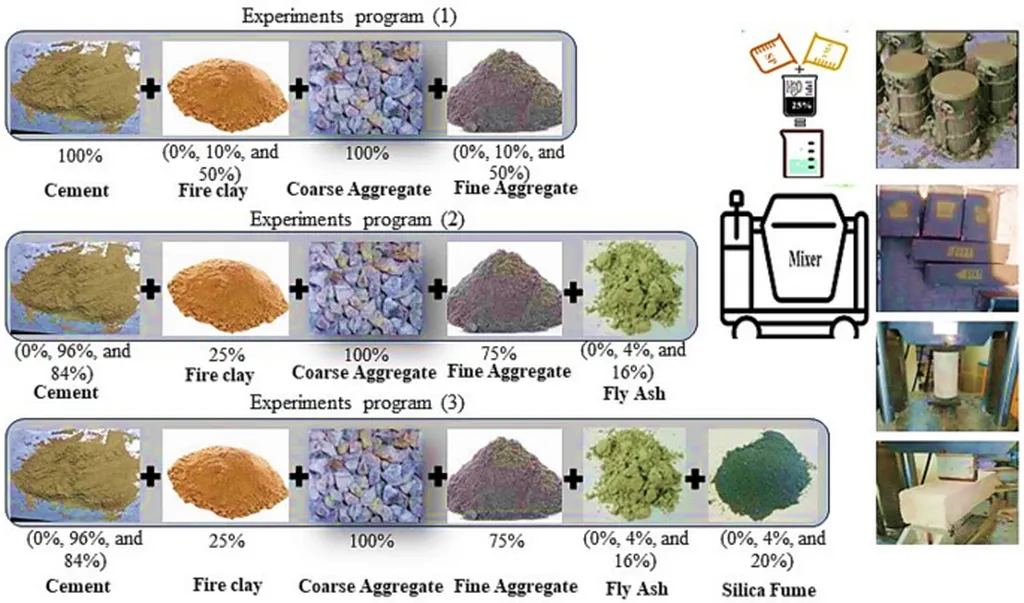In the heart of Saudi Arabia’s Jouf University, a team of researchers led by Dr. Fahad Alsharari is revolutionizing the construction industry by transforming agricultural waste into high-performance concrete. Their groundbreaking study, published in the esteemed journal “Reviews on Advanced Materials Science” (translated to English as “Reviews on Advanced Materials Science”), is paving the way for a more sustainable and efficient future in construction.
The research focuses on optimizing concrete mix designs using agricultural byproducts such as corn cob ash, palm oil fuel ash, rice husk ash, sugarcane bagasse ash, and wheat straw ash. These materials, often discarded as waste, are proving to be valuable resources in the creation of sustainable concrete. “We are not just reducing waste; we are enhancing the performance of concrete,” says Dr. Alsharari, a leading figure in the Civil Engineering Department at Jouf University.
The study employs advanced machine learning (ML) techniques, specifically gene expression programming (GEP) and multi expression programming (MEP), to predict and optimize the strength performance of these innovative concrete mixes. The results are impressive, with the MEP model outperforming GEP in both compressive strength (CS) and tensile strength (TS) predictions. “The accuracy of our models is a game-changer,” explains Dr. Alsharari. “It allows us to minimize trial-and-error experimentation, saving time and resources.”
The commercial implications for the energy sector are significant. As the world shifts towards renewable energy sources, the demand for sustainable construction materials is on the rise. Agro-waste-based concrete offers a viable solution, reducing environmental impact while maintaining structural reliability. “This research provides engineers with practical tools to develop high-performance concretes that are not only sustainable but also cost-effective,” says Dr. Alsharari.
The study’s findings are a testament to the power of machine learning in enhancing mix design efficiency. By incorporating agro-waste materials, the research demonstrates how ML can streamline the development of sustainable construction materials, ultimately shaping the future of the industry. As Dr. Alsharari puts it, “We are at the forefront of a new era in construction, where sustainability and performance go hand in hand.”
In the quest for sustainable construction materials, this research marks a significant milestone. By turning agricultural waste into valuable resources, Dr. Alsharari and his team are not only reducing environmental impact but also setting new standards for high-performance concrete. Their work is a beacon of innovation, guiding the industry towards a more sustainable and efficient future.

